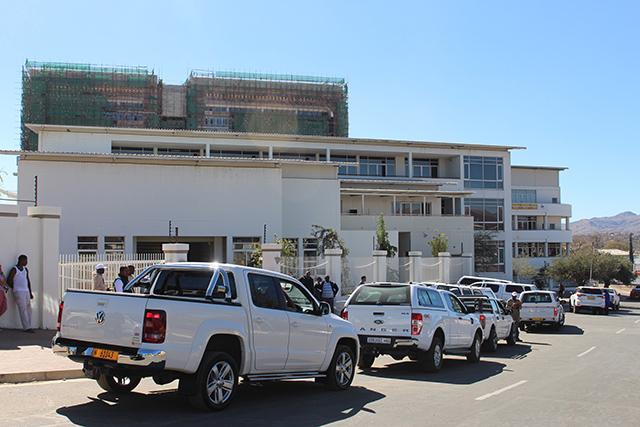Ministry of Labour, Industrial Relations and Employment Creation acting commissioner Kyllikki Sihlahla said they are worried about the lack of compliance among trade unions and employers’ organisations with their obligations to the Labour Act.
Sihlahla was speaking on Tuesday during the minister’s stakeholder engagement in Windhoek.
“Currently, only nine out of 61 entities are in compliance, representing a mere 15% compliance rate. We have noticed a significant lack of compliance among trade unions and employers’ organisations with their obligations as outlined in section 60 of the Labour Act. This situation is worrisome and requires immediate attention and rectification,” she said.
According to Sihlahla, there are currently 17 registered employer organisations and 44 registered trade unions in Namibia.
Sihlahla also mentioned that the ministry commits to reducing the pending cases from the previous years to zero by March next year.
“We are fully aware that there are significant delays in finalising cases, especially in issuing the award and this does not align with our act. We are optimistic that the targets we set for ourselves are realistic and attainable, however, we will only be able to succeed if all the role players in this play their parts,” she said.
Meanwhile, labour minister Utoni Nujoma said they have made significant contributions to fostering harmonious labour relations in Namibia.
“The ministry maintains offices across the entire country, ensuring accessibility for the public. Complainants can refer labour disputes to or seek follow-ups at any of these offices,” he said. Nujoma said the ministry is faced with criticism and misconception regarding the nature of the Alternate Dispute Resolution (ADR) system and the role of the conciliator and arbitrators at the arbitration tribunals.
“In particular, some critics, particularly workers, express dissatisfaction when an arbitrator’s award/ruling does not favour their individual or collective interests.
It appears that they hold the perception that the labour commissioner should act exclusively as a ‘representative’ or ‘advocate’ for employees.
However, this belief is a misinterpretation of the labour commissioner’s mandate,” he said.
Nujoma said the underlying objective of the system is to provide a swift and cost-effective resolution for disputes arising from breaches of employment contracts, collective agreements, or violations of the Labour Act. “The system aims to ensure accessible justice for both workers and employers through a neutral tribunal. It is important to emphasise that the role of the labour commissioner is not to take sides, but to offer professional services aimed at assisting the parties in settling their disputes,” he said.
Nujoma said undoubtedly, delays pose the most significant challenge to the ADR system, impacting both employees and employers.
“When workplace issues remain unresolved, the consequences are far-reaching. The increasing presence of legal practitioners and consultants has led to prolonged litigation, a focus on technicalities, frequent requests for postponements, and a misconception among complainants that substantial financial expenditure on representation is necessary to attain justice before the arbitration tribunals,” he said.
Stay informed with The Namibian – your source for credible journalism. Get in-depth reporting and opinions for
only N$85 a month. Invest in journalism, invest in democracy –
Subscribe Now!






